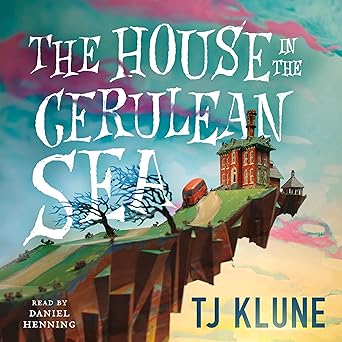
The story follows Linus Baker, a case worker in the Department in Charge of Magical Youth. He is tasked with assessing the magical abilities of six children, known as Supernovas, who have the potential to bring about catastrophic events. Linus's job is to determine which children are likely to be a danger to the world, and if they can be safely kept in the orphanage, the Asterly Orchid Institute, under the care of Arthur Parnassus.
Linus is a by-the-book kind of person, and he is initially taken aback by the unconventional methods of Arthur, the master of the orphanage. As Linus spends more time with the children and witnesses Arthur's dedication to keeping them safe, he begins to question his own approach to his job. The children, each with their unique magical abilities, slowly reveal fragments of their past, including hints of trauma, abandonment, and the loss of loved ones. Linus starts to see them not just as potential threats but as individuals with their own stories, needs, and desires. He begins to reevaluate his priorities and confronts the limitations of his own heart and the dark memories of his own past.
Through Linus's journey, TJ Klune masterfully weaves a narrative that explores themes of identity, belonging, love, and what it means to be part of a family. The story spans a range of emotions, from quirky humor to emotional depth, as Linus navigates the complexities of his relationship with Arthur and the children. The House in the Cerulean Sea is a testament to the transformative power of human connection and the resilience of the human heart. The author's words are like a gentle wind that lifts the reader up, carrying them on a journey of self-discovery and the discovery of an unlikely family in an unexpected place.
I recently finished reading a book that left me with a mix of emotions, from joy to heartache, and I couldn't help but think of my own experiences with loss and finding solace in unexpected places. The story follows a man named Linus, who works in a magical organization that aims to protect children with special abilities. Linus's job is to determine whether these children are threats to the world and can be safely kept in an orphanage. What I admired most about Linus's character is how he started out as a by-the-book kind of person but began to question his approach as he got to know the children.
As I turned the pages, I found myself drawn into Linus's world, learning about each child's unique magical abilities and their dark pasts. The author masterfully weaves these stories together, exposing the fragility of these children's hearts and the trauma they've experienced. What struck me most was how Linus, with his own dark memories, began to see the children not just as threats, but as individuals with their own stories and needs. He started to reevaluate his priorities and confront the limitations of his own heart, and it was a truly beautiful thing to witness. The author has a gift for crafting characters that feel like old friends, and Linus is no exception.
The story is a testament to the transformative power of human connection and the resilience of the human heart. The author's words are like a gentle wind that lifts the reader up, carrying them on a journey of self-discovery and the discovery of an unlikely family in an unexpected place. As I finished the book, I felt like I was closing the door on a difficult chapter of my own life, but then the author encourages me to open it again, filled with hope and possibility. It's a testament to the enduring power of love, forgiveness, and the human spirit.
Rating: 3.0 / 5.0
The story follows Linus Baker, a case worker who assesses the magical abilities of six children, known as Supernovas, who have the potential to bring about catastrophic events. Linus is initially taken aback by the unconventional methods of Arthur Parnassus and begins to question his own approach to his job after spending more time with the children. As he witnesses their dark pasts, Linus sees them not just as threats, but as individuals with their own stories, needs, and desires. He starts to reevaluate his priorities and confronts the limitations of his own heart, discovering the transformative power of human connection and the resilience of the human heart.